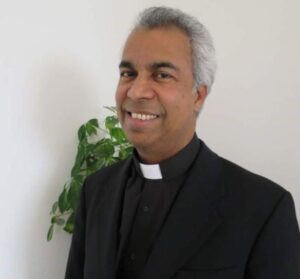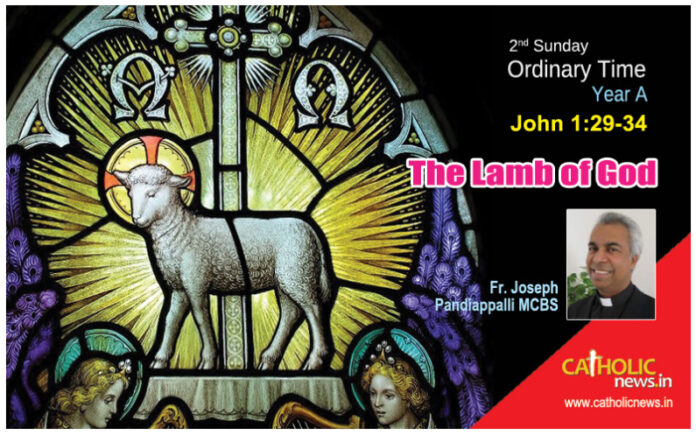
I greet you cordially in the second week of the ordinary time. Last Sunday we celebrated the feast of the baptism of Jesus. The Gospel reading on the baptism of Jesus was from the Gospel of Mathew. Today we hear from the Gospel of John in which John the Baptist named Jesus as Lamb of God and as Son of God. The confession about Jesus as Son of God is the faith of the Christians about Jesus.
In every Eucharistic celebration the priest says before receiving the communion: „This is the lamb of God who takes away the sins of the world.“ This sentence is taken from the Gospel of St John which is the confession of John the Baptist. John the Baptist proclaims public: Jesus is lamb of God, Jesus is Son of God.
These words of John the Baptist from the Gospel of St. John is the oldest christological statement about Jesus of Nazareth. Not only at that time in the early Church, today also, this is the most important confession of the Christians. We proclaim this faith. The children and the grown up aspirants receive baptism because of this faith and after confessing this faith. The first holy communion, confirmation and the other sacraments are given due to this faith in Jesus of Nazareth.
In this sentence about Jesus as lamb there is an ambiguity namely a lamb is described in Palestine also a servant. The great prophets Isiah and Jeremiah were denoted and designated as servant of Israel and as servant of God. The description as servant of God means chosen by God. Jesus as Lamb of God means Jesus is the chosen one by God. This being chosen by God in the case of Jesus is expressed through the voice from heaven: „You are my beloved Son in whom I am pleased“. This statement about Jesus during his baptism became the confession of the Christians after the death and resurrection of Jesus. This is our confession too. Therefore we are gathered together today. We have come together in this house of God in oder to experience the Son of God in the eucharistic celebration and to draw strength for every day.
The prophet compares the servant of God with sheep and lamb. John says: this lamb will take away our sins. That means: Jesus will bring salvation. Our sins will be washed of with the blood of Christ. Jesus has payed of our sins through hid death and resurrection and has rescued us and brought salvation.
This theology of salvation and soteriology through the suffering of the Son of God introduces the question whether God himself had to suffer and die in oder to save the humanity from their sins. Whether the sins of the humans are forgiven through the suffering of the God or through the suffering of the innocent. Many Church fathers have written much about this theme and handed over a soteriology of the suffering and death of Jesus in oder to save us and raise us to the status of the children of God. But we hear now a days discussions whether this negative theology of the suffering and death is suitable for todays people while nobody will like neither to suffer nor to die. Instead every one tries to prevent suffering and death and even aspire for deathlessness.
I will dare to understand the concept of suffering and death of Jesus for our salvation in the perspective of relationship between God and human, love of God for the human, our love towards God and our love of the neighbour or our love between human. God suffered and died for the human because God loved the human. Helping and saving love can not avoid suffering and loss. Nobody wants to suffer, not even God aspire suffering, but it comes unexpected, uninvited and unavoidable. Jesus as saving Son of God had to suffer in this sense.
As Christians we are invited to work for our fellow humans and to cope with the arising suffering. Then we will be also lamb of God, Son of God and servant of God who take away the sins of the world.
Fr. Joseph Pandiappalli MCBS



